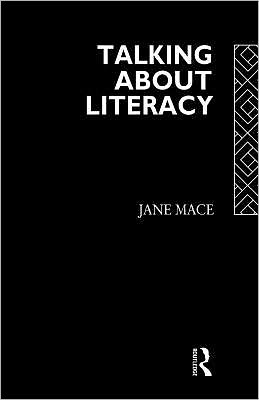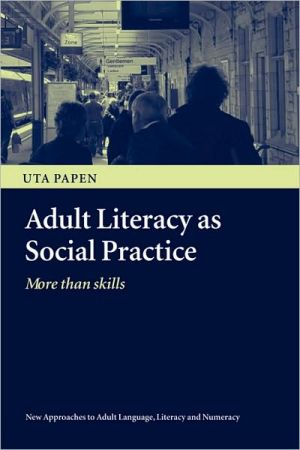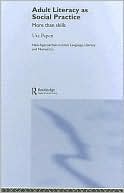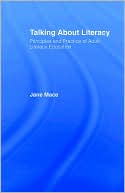Talking About Literacy
Talking about Literacy re-examines dominant notions of what litreracy is, and challenges the problem-solution reflex to the issue (the problem is illiteracy: the solution is more literacy). Literacy has enormous emotional and political associations, and the job of literacy educator often concerns changing attitudes and challenging prejudices - whether in the form of publicity strategies, counselling new students, or in curriculum design. In short, adult literacy education means not only...
Search in google:
Talking about Literacy re-examines dominant notions of what litreracy is, and challenges the problem-solution reflex to the issue (the problem is illiteracy: the solution is more literacy). Literacy has enormous emotional and political associations, and the job of literacy educator often concerns changing attitudes and challenging prejudices - whether in the form of publicity strategies, counselling new students, or in curriculum design. In short, adult literacy education means not only teaching courses like 'fresh start', 'basic skills', 'study skills', 'communication skills', 'language support' and 'return to study', but also designing strategies to encourage people to see that these courses may meet their own interests - and educating them and others to rethink their own negative attitudes to 'illiteracy'.The book looks in detail in at five principles put forward by Jane Mace as central to the education of people who often can read, but wish they could read better; who, technically can write, but have a desire to do so with more expression and coherence. These principles focus on five themes: context, inquiy, authorship, equality and community. Since it is all too easy for literacy education involving adults who do not have formal qualifications to stop short of teaching techniques for 'correct' writing, these principles mean taking seriously a view that adult students are writers as well as readers - that they have an entitlement to be read, as well as to read others.
AcknowledgementsIntroductionTo the readerOn writing booksThe shape of this bookPt. IIssues1Problems of Representation3Liberating literacy4The illiterate as someone else7Authors and interviewees10Describe or quantify?14Authentic voices162The Truth for Now23Truths for teachers, truths for students24Truth or fiction?28Truth and talk31Truth and style34Pt. IIPrinciples3Listening to the Questions43Questions: asked and unasked45Literacy: how do we talk about it?47Needs and interests50Context and outreach53Class and literacy: some themes584The Teacher-Researcher64Researching the interest64Context and menus69Researching the answers73Words and contradictions765Authors and Identity83From private to public84Rights and responsibilities94Inspirations966Readers Equal Writers102Reading aloud104Applause and audience107Trusting the reader109Friend or censor?1137Vocations and Vocationalism119The workplace as community120Maps and communities125Status and literacy127Communication and community1308Conclusion140Afterword144Notes147Bibliography158Index164



